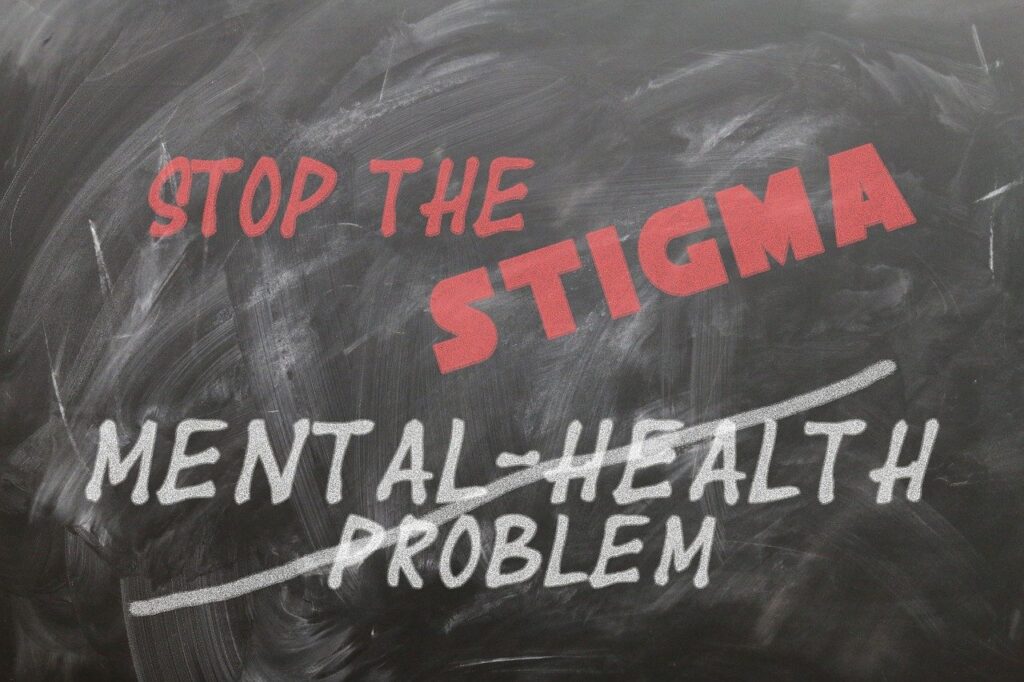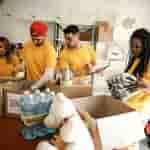Reducing Stigma Surrounding HIV and STDs in Marginalized Communities
Our Project to Combat HIV and STD Stigma
Our Reducing Stigma Surrounding HIV and STDs in Marginalized Communities initiative aims to dismantle the barriers created by stigma. By providing accurate information, fostering supportive communities, and promoting culturally sensitive healthcare practices, we will work toward creating an environment where individuals feel empowered to seek care without fear of discrimination.
Our project will focus on four primary areas of intervention:
- Education and Awareness Programs
- Community Support Initiatives
- Healthcare Provider Training
- Advocacy and Policy Reform
Each of these areas will include specific strategies to address stigma, improve health outcomes, and create lasting change in marginalized communities.
Project Implementation
- Education and Awareness Programs
Education is a critical tool in combating stigma. By providing accurate, accessible information, we can correct misconceptions about HIV and STDs and foster a more compassionate understanding of these conditions.
- Public Awareness Campaigns: We will launch awareness campaigns across various media, including social media, radio, and community events. These campaigns will focus on debunking myths, explaining the facts about HIV and STD transmission, and encouraging regular testing. By normalizing conversations around these issues, we hope to make individuals feel more comfortable seeking information and help.
- Workshops and School Programs: Collaborating with schools and community centers, we will organize workshops and educational programs tailored to different age groups. These sessions will cover topics like safe sex practices, the importance of regular health check-ups, and how to support individuals affected by HIV or STDs. This early education is essential in shaping positive attitudes and reducing stigma from a young age.
- Storytelling and Testimonies: Personal stories have a powerful impact on reducing stigma. We will invite individuals who have overcome the stigma of living with HIV or an STD to share their stories through videos, blogs, or live talks. Hearing firsthand experiences helps dismantle stereotypes and fosters empathy within the community.
- Community Support Initiatives
Providing a strong support network for people affected by HIV and STDs is crucial to reducing the feelings of isolation and shame often associated with these conditions.
- Support Groups: We will establish support groups where individuals living with HIV or STDs can share their experiences and connect with others facing similar challenges. These groups will provide a safe, non-judgmental space where members can receive emotional support, advice, and encouragement.
- Community Health Ambassadors: We will recruit and train community members to serve as health ambassadors. These ambassadors will act as liaisons between healthcare providers and the community, sharing information, providing support, and helping to reduce stigma at the grassroots level.
- Family and Partner Counseling: Addressing stigma within the family unit is essential. Through counseling programs, we will help family members understand and support their loved ones. Counseling sessions will also focus on encouraging open communication, which is critical in breaking down stigmatizing attitudes within intimate relationships.
- Healthcare Provider Training
Healthcare providers play a key role in either perpetuating or alleviating stigma. By training healthcare providers to deliver culturally sensitive and stigma-free care, we can create a healthcare environment that is more welcoming and accessible for marginalized communities.
- Cultural Sensitivity Training: We will partner with healthcare institutions to deliver training programs on cultural sensitivity, focusing on the unique challenges faced by marginalized communities. These sessions will cover respectful communication, understanding cultural beliefs, and addressing unconscious biases that may affect patient care.
- Empathy and Compassion Training: Medical professionals will undergo training focused on empathy and compassion in patient interactions. They will learn how to offer support without judgment, which is essential in building trust and encouraging patients to disclose their health status or seek care.
- Creating a Stigma-Free Environment: We will work with healthcare facilities to create visible signs of support for people living with HIV or STDs. This might include posters, informational pamphlets, or designated “safe spaces” where patients can feel comfortable discussing their health concerns.
- Advocacy and Policy Reform
Lasting change requires addressing the systemic issues that perpetuate stigma, including laws and policies that discriminate against people living with HIV and STDs.
- Policy Reform Advocacy: We will collaborate with policymakers to advocate for anti-discrimination policies in healthcare, employment, and education. This includes pushing for changes to ensure that people living with HIV or STDs are not denied employment, housing, or education due to their health status.
- Decriminalization Efforts: In some regions, laws criminalize individuals for transmitting HIV or other STDs, even in cases where transmission was accidental or unintended. These laws often disproportionately affect marginalized communities, fueling stigma and discouraging individuals from disclosing their status. Our advocacy will focus on reforming or repealing such punitive laws.
- Partnering with Human Rights Organizations: By partnering with human rights organizations,
Conclusion
Reducing the stigma surrounding HIV and STDs in marginalized communities is a multi-faceted effort that requires education, support, cultural sensitivity, and systemic change. By tackling the root causes of stigma, providing community support, training healthcare providers, and advocating for policy reform, we can create a more inclusive and understanding environment for individuals affected by these conditions.
Our project aims to empower individuals to seek care without fear of judgment and to foster a community where HIV and STDs are viewed as medical issues, not moral failings. Together, we can reduce stigma, improve health outcomes, and create a supportive environment for all members of society.
Our Project to Combat HIV and STD Stigma
Our Reducing Stigma Surrounding HIV and STDs in Marginalized Communities initiative aims to dismantle the barriers created by stigma. By providing accurate information, fostering supportive communities, and promoting culturally sensitive healthcare practices, we will work toward creating an environment where individuals feel empowered to seek care without fear of discrimination.
Our project will focus on four primary areas of intervention:
- Education and Awareness Programs
- Community Support Initiatives
- Healthcare Provider Training
- Advocacy and Policy Reform
Each of these areas will include specific strategies to address stigma, improve health outcomes, and create lasting change in marginalized communities.
Project Implementation
- Education and Awareness Programs
Education is a critical tool in combating stigma. By providing accurate, accessible information, we can correct misconceptions about HIV and STDs and foster a more compassionate understanding of these conditions.
- Public Awareness Campaigns: We will launch awareness campaigns across various media, including social media, radio, and community events. These campaigns will focus on debunking myths, explaining the facts about HIV and STD transmission, and encouraging regular testing. By normalizing conversations around these issues, we hope to make individuals feel more comfortable seeking information and help.
- Workshops and School Programs: Collaborating with schools and community centers, we will organize workshops and educational programs tailored to different age groups. These sessions will cover topics like safe sex practices, the importance of regular health check-ups, and how to support individuals affected by HIV or STDs. This early education is essential in shaping positive attitudes and reducing stigma from a young age.
- Storytelling and Testimonies: Personal stories have a powerful impact on reducing stigma. We will invite individuals who have overcome the stigma of living with HIV or an STD to share their stories through videos, blogs, or live talks. Hearing firsthand experiences helps dismantle stereotypes and fosters empathy within the community.
- Community Support Initiatives
Providing a strong support network for people affected by HIV and STDs is crucial to reducing the feelings of isolation and shame often associated with these conditions.
- Support Groups: We will establish support groups where individuals living with HIV or STDs can share their experiences and connect with others facing similar challenges. These groups will provide a safe, non-judgmental space where members can receive emotional support, advice, and encouragement.
- Community Health Ambassadors: We will recruit and train community members to serve as health ambassadors. These ambassadors will act as liaisons between healthcare providers and the community, sharing information, providing support, and helping to reduce stigma at the grassroots level.
- Family and Partner Counseling: Addressing stigma within the family unit is essential. Through counseling programs, we will help family members understand and support their loved ones. Counseling sessions will also focus on encouraging open communication, which is critical in breaking down stigmatizing attitudes within intimate relationships.
- Healthcare Provider Training
Healthcare providers play a key role in either perpetuating or alleviating stigma. By training healthcare providers to deliver culturally sensitive and stigma-free care, we can create a healthcare environment that is more welcoming and accessible for marginalized communities.
- Cultural Sensitivity Training: We will partner with healthcare institutions to deliver training programs on cultural sensitivity, focusing on the unique challenges faced by marginalized communities. These sessions will cover respectful communication, understanding cultural beliefs, and addressing unconscious biases that may affect patient care.
- Empathy and Compassion Training: Medical professionals will undergo training focused on empathy and compassion in patient interactions. They will learn how to offer support without judgment, which is essential in building trust and encouraging patients to disclose their health status or seek care.
- Creating a Stigma-Free Environment: We will work with healthcare facilities to create visible signs of support for people living with HIV or STDs. This might include posters, informational pamphlets, or designated “safe spaces” where patients can feel comfortable discussing their health concerns.
- Advocacy and Policy Reform
Lasting change requires addressing the systemic issues that perpetuate stigma, including laws and policies that discriminate against people living with HIV and STDs.
- Policy Reform Advocacy: We will collaborate with policymakers to advocate for anti-discrimination policies in healthcare, employment, and education. This includes pushing for changes to ensure that people living with HIV or STDs are not denied employment, housing, or education due to their health status.
- Decriminalization Efforts: In some regions, laws criminalize individuals for transmitting HIV or other STDs, even in cases where transmission was accidental or unintended. These laws often disproportionately affect marginalized communities, fueling stigma and discouraging individuals from disclosing their status. Our advocacy will focus on reforming or repealing such punitive laws.
- Partnering with Human Rights Organizations: By partnering with human rights organizations,
Conclusion
Reducing the stigma surrounding HIV and STDs in marginalized communities is a multi-faceted effort that requires education, support, cultural sensitivity, and systemic change. By tackling the root causes of stigma, providing community support, training healthcare providers, and advocating for policy reform, we can create a more inclusive and understanding environment for individuals affected by these conditions.
Our project aims to empower individuals to seek care without fear of judgment and to foster a community where HIV and STDs are viewed as medical issues, not moral failings. Together, we can reduce stigma, improve health outcomes, and create a supportive environment for all members of society.




